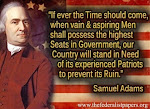Here are some choice quotes followed by my comments:
During the prairie revolt that swept the Great Plains in 1890, populist orator Mary Elizabeth Lease exclaimed, “Wall Street owns the country…. Money rules…. Our laws are the output of a system which clothes rascals in robes and honesty in rags. The [political] parties lie to us and the political speakers mislead us.”Sounds familiar, 'eh?
Why New York’s Zuccotti Park is filled with people is no mystery. Reporters keep scratching their heads and asking, “Why are you here?” But it’s clear they are occupying Wall Street because Wall Street has occupied the country. And that’s why in public places across the nation workaday Americans are standing up in solidarity. Did you see the sign a woman was carrying at a fraternal march in Iowa the other day? It read, I Can’t Afford to Buy a Politician So I Bought This Sign. Americans have learned the hard way that when rich organizations and wealthy individuals shower Washington with millions in campaign contributions, they get what they want.Yes, it will take us, Involved Voters, standing up and demanding a government that serves all the People, not just the few. This will be hard work - especially when the average citizen is kept busy trying to make ends meet and just wants to crash in front of the TV at the end of the day. Then there are those whose situations are even worse because of job losses and foreclosures, who are depressed and immobilized.
William Simon (in his) book A Time for Truth argued that “funds generated by business” must “rush by multimillions” into conservative causes to uproot the institutions and the “heretical strategy” of the New Deal. He called on “men of action in the capitalist world” to mount “a veritable crusade” against progressive America. BusinessWeek (October 12, 1974) somberly explained that “it will be a bitter pill for many Americans to swallow the idea of doing with less so that big business can have more.”
Those “men of action in the capitalist world” were not content with their wealth just to buy more homes, more cars, more planes, more vacations and more gizmos than anyone else. They were determined to buy more democracy than anyone else. And they succeeded beyond their expectations. After their forty-year “veritable crusade” against our institutions, laws and regulations—against the ideas, norms and beliefs that helped to create America’s iconic middle class—the Gilded Age is back with a vengeance.The world is more complicated now than it was in 1890, but change brought about by the majority of us working together is still possible - not to mention absolutely necessary for the basic well-being of all. When you hear and see campaign ads - follow the money and take them with a grain of salt. Work for and vote for those who will restore government of., by and for Real People.
